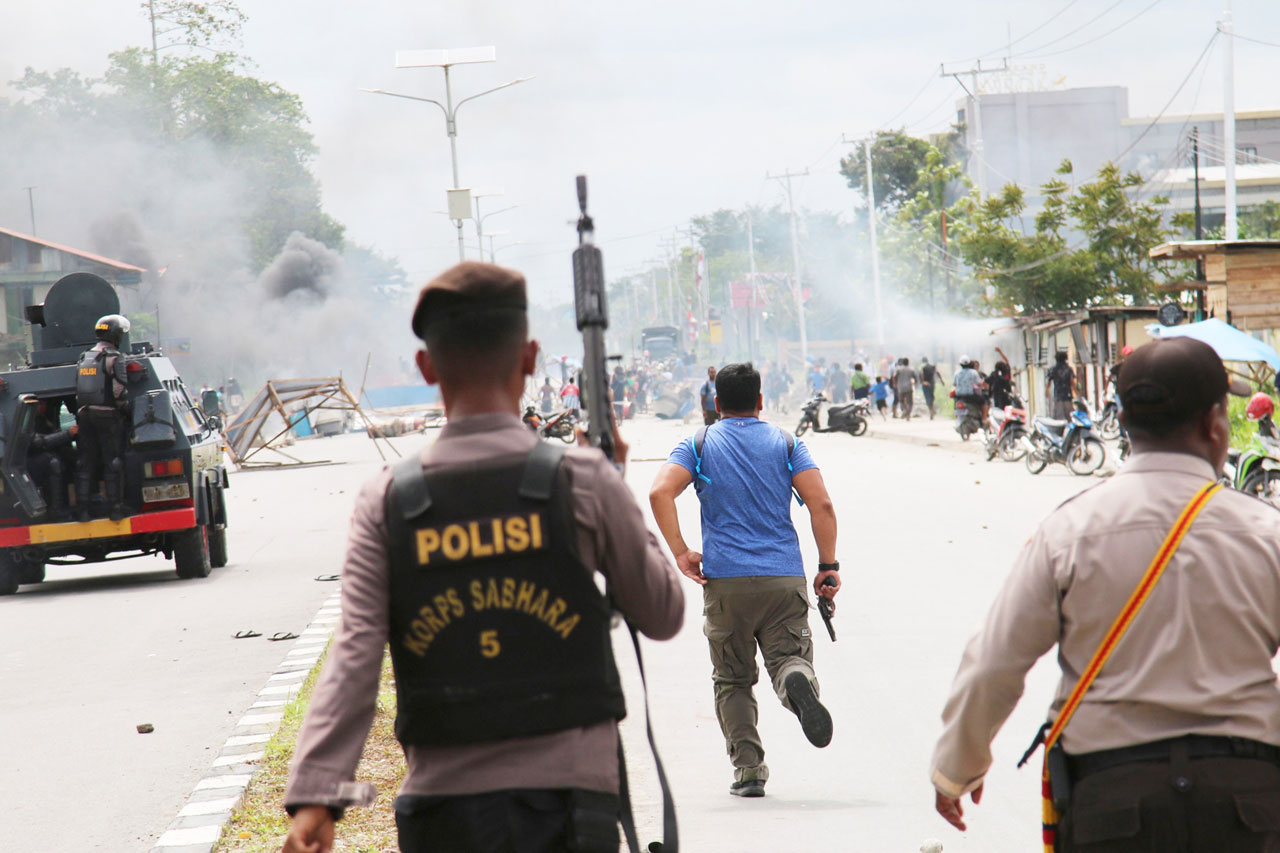It’s been a week since the Indonesian government decided to block all internet access in Papua and West Papua in response to protests and riots in a number of cities within the two provinces that were set off by viral videos of Papuan students being subjected to racist abuse in Surabaya. Despite reports that the unrest has largely died down, the government continues to maintain the internet block and has not yet given any indication for when it will be lifted.
Questioned by Detik yesterday night, a spokesman for the Ministry of Communications and Information Technology (Kominfo) confirmed that the internet block was still in effect and said he had not received any information from Kominfo Minister Rudiantara about when the block will be repealed. He added that people there could still make phone calls and communicate by SMS.
Previously, the government had said that internet access would be restored when the security situation in Papua and West Papua returned to normal. On Monday, Rudiantara defended maintaining the block despite the lack of protests and riots, claiming that there was still a lot of fake news related to Papua being spread online.
“In terms of the real world, there are no more demos. But in cyberspace there are more than 230,000 URLs containing hoaxes that we have neutralized. Meaning URLs are the channels being used [to spread hoaxes]. The most come from Twitter. That’s massive. That means the content including all kinds of hoaxes, fake and inflammatory news can cause more conflict,” Rudiantara said at the Presidential Palace as quoted by Detik.
Although Rudiantara said he hoped that internet access could swiftly be restored to the two provinces, he said that the government had legal justifications for maintaining the block.
Numerous rights groups and journalists have blasted the government’s decision to prevent people from getting online in the two provinces, arguing that it made reporting on events (and potential government misconduct) difficult and violated principles of free speech.
Even House Deputy Speaker Fahri Hamzah, a right-wing politician not exactly known as a friend to rights activists, echoed their language in calling the internet block a potential violation of human rights.
On August 17 — Indonesia’s Independence Day — authorities tear-gassed and detained 43 Papuan university students in the city of Surabaya for allegedly desecrating the Indonesian flag, during which time they were reportedly pelted with racist abuse by authorities.
Videos of the incident quickly went viral, leading thousands to protest the next day in major West Papuan and Papuan cities, including in Manokwari, where protesters torched a local parliament building. There were more reports of protests and riots throughout the week, including in Jayapura, Timika, Sorong and Fakfak.
Today, National Police Chief General Tito Karnavian said that security and public order in Papua and West Papua were now under control. However, there are reports that protests are likely to continue, with Papuan activists trying to use the momentum of last week’s events to continue to push for an independence referendum, despite fears of reprisal from authorities.





Brien Doyle says
We – IN THE REAL WORLD – know exactly what ‘news censorship’ means (aside from lies and cowardice)